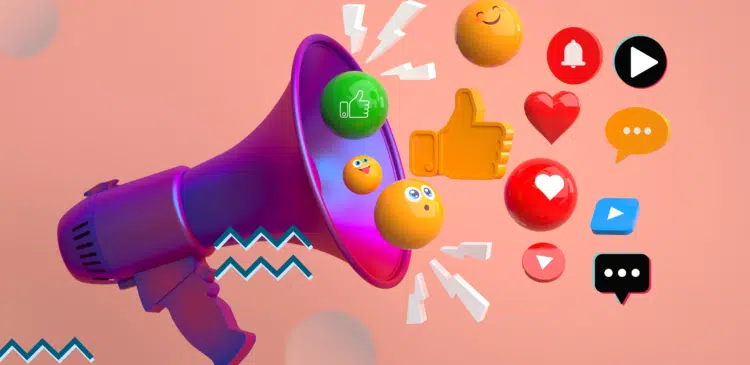How Tokenized Media Will Change Content in the Web3 Era

Welcome to Web3, where traditional content will change drastically! Be prepared for tokenized media, which will change how we consume and interact with digital material. We will define tokenized media and examine its tremendous effects on online life. Prepare to explore decentralized creation and how it will change content!
What is tokenized media?
Tokenized media involves creating blockchain-based tokens from digital material like articles, photos, videos, and music. Tokens can be purchased, sold, and traded like other cryptocurrencies. Essentially, tokenizing media assets lets creators own and monetize their work in new and exciting ways.
Tokenized media eliminates publishers and record labels via blockchain technology. Instead, content providers can directly engage their audience while protecting their IP. This offers several opportunities for artists and authors who have struggled to get paid fairly.
Traditional media lacks transparency, but tokenization adds it. These digital assets’ transactions are publicly recorded on the blockchain’s immutable ledger. Trust between creators and customers is built by accurate ownership attribution and reasonable remuneration.
How will tokenized media change content?
Tokenized media will change Web3 content creation and consumption. Tokenization uses blockchain technology to allow fractional ownership and transfer of digital goods including music, art, film, and more.
Tokenized media will transform content by giving artists new monetization options. Through tokenization, artists may sell directly to fans without a big markup. This lets creators control their work and share revenue more fairly.
Tokenized media also promotes community collaboration. Token holders can influence project direction or contribute directly through decentralized governance mechanisms. Users become active contributors rather than passive consumers in an inclusive atmosphere.
Tokenization also expands content discovery and curation. Platforms can reward users who curate high-quality content with tokens or other incentives. This fosters a dynamic ecology that rewards valuable contributions.
Tokenized media may also change copyright and licensing. Smart contracts on blockchain networks monitor ownership and royalties transparently. Authors can receive automated royalties for use or sharing within smart contract parameters.
What are the benefits of tokenized media?
Tokenized media has many advantages that could change Web3 content consumption and interaction. Transparency is a big benefit. With tokenization, every media ecosystem transaction and interaction is recorded on the blockchain, making data manipulation impossible. Authenticity and trust are ensured.
Another benefit is increased content producer monetization. Creators can tokenize their work to earn direct payment from fans. Creators gain more revenue control by eliminating publishers and streaming platforms.
Tokenized media also encourages community participation. Users become stakeholders in the success of the content they support by using tokens. They feel empowered by voting on decisions and proposing future projects.
Artists and fans can collaborate more with tokenized media. Through tokens, artists can create limited-edition souvenirs or unique experiences that fans can trade or redeem in digital ecosystems around certain artworks or businesses.
How will tokenized media be used in the future?
Future content consumption may be transformed by tokenized media. Creators can tokenize art, music, movies, and writing with blockchain technology. These tokens represent ownership rights and enable new distribution and monetization options.
Tokenized media may allow artists and audiences to interact directly. Decentralized markets allow artists to sell directly to fans without publishing or streaming services. This gives creators more control over their IP, making the system more fair.
Furthermore, tokenized media allows fractional ownership. Partial ownership of an artwork or song is available to fans. This increases inclusivity and financially rewards people who promote their cause.
Through smart contracts, tokenization allows programmable royalties. Instead of cumbersome royalty schemes, artists can receive automatic compensation when their work is sold or licensed.
Tokenized media also promotes creative collaboration through interoperability. These tokens allow smooth content mixing between platforms.
Tokenized media has great potential to change Web3 content creation and consumption.
Conclusion
Tokenized media will change Web3 content creation, sharing, and consumption. Tokenized media might transform industries and empower creators like never before by using blockchain and cryptocurrencies.
Content creators can claim ownership of their work with non-fungible tokens (NFTs) in tokenized media, assuring correct credit and compensation. Artists, musicians, writers, and other creatives can now monetize their work directly without intermediaries.
Tokenized media also increases digital trust and transparency. Users can easily verify content validity and provenance using smart contracts on blockchain-powered decentralized networks. This prevents plagiarism and distributes content money fairly.
Besides these benefits for artists and users, tokenized media allows cross-border collaboration. Decentralized autonomous organizations (DAOs) and token or NFT-facilitated crowdfunding campaigns allow fans to actively support initiatives they believe in and receive a stake in their success.
Future tokenized media will integrate Web3 technologies and content creation platforms even further. NFT marketplaces will gain popularity as mainstream audiences embrace this novel concept.
Additionally, AR and VR advances will enable immersive tokenized media ecosystem experiences. Imagine witnessing a concert in virtual reality or browsing a unique digital art exhibition made possible through tokenization.
While tokenized media has significant drawbacks, it has the potential to revolutionize how we create, distribute, value, and engage with digital information in the future.



 Bill Yeager, Co-Owner of High Point SEO & Marketing in CT
Bill Yeager, Co-Owner of High Point SEO & Marketing in CT